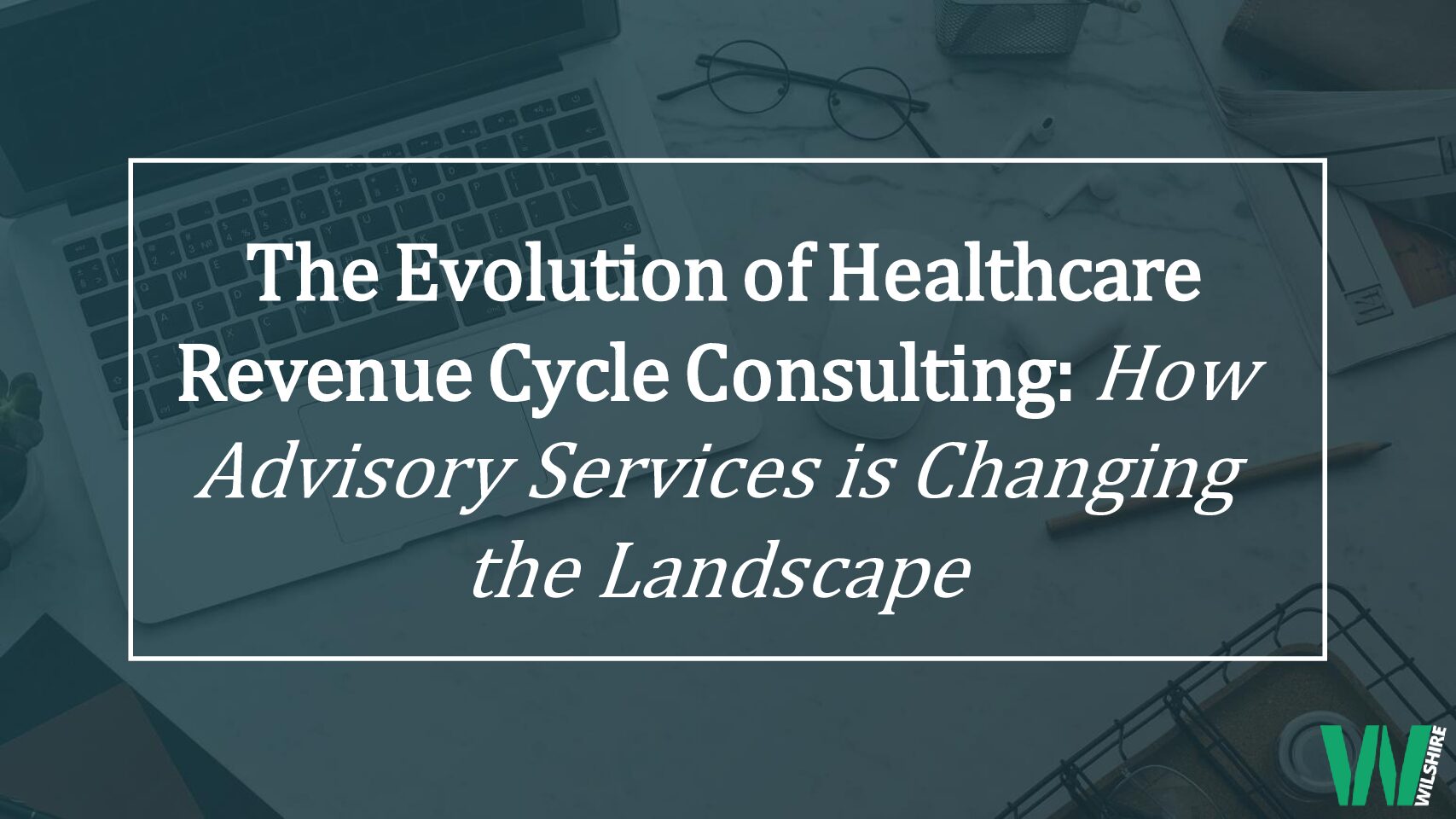The healthcare revenue cycle management landscape has transformed dramatically over the past ten years and COVID-19 brought monumental change to how organizations strategically manage revenue optimization and workforce management. The pandemic put many aspects of life into perspective, and this has led to employees becoming more empowered in a way that could not be matched by traditional healthcare roles.
While revenue cycle management (RCM) professionals value remote work and flexibility, one of the major effects of remote work is that it radically expands the reach of a recruiter’s hiring efforts in an increasingly competitive market. In turn, healthcare executives have had to adapt their strategies and enlist the help of vendor solutions to fill interim roles in ensuring stability during changing circumstances of all kinds. As a result, many of the top RCM consulting vendors have made bold moves and expanded or modified their existing service platforms to include advisory services as a service line. This additional service line offers both leadership expertise and commitment while maintaining the momentum of strategic initiatives and optimization.
Interim Leaders and Beyond
Interim Leaders provide high-value leadership and management support that allows the organization to take the time necessary to recruit a permanent leader. In addition, interim leaders often benefit the organization by providing a fresh approach and perspective. An advisor can also help with onboarding, mentoring, and coaching during the transition. Advisors are individuals who specialize in helping organizations navigate change. They develop strategies and guide how to implement them.
As the healthcare revenue cycle evolves and more, revenue cycle leaders move into advisor-type roles and strategic advisors will become increasingly important. Healthcare organizations will benefit by taking advantage of working with consulting firms, like The Wilshire Group, to tap into that talent pool to fill interim leadership roles or project management positions. As mentioned previously, the labor market is seeing intense competition for revenue cycle jobs. Making hiring qualified candidates even harder is that many health systems are seeking proficiency with software like Epic, Cerner, and Meditech. However, the industry is seeing more certified revenue cycle professionals leave healthcare systems for consulting and advisory-type roles.
Independent Consulting and Firms
Once viewed as an off-ramp for executives drifting toward retirement or a life-raft for those struggling to re-enter the workforce after a break, independent consulting has emerged as a viable, option in today’s hot job market. Many professionals see the rewards: more money, flexible hours, and control over the type and amount of work performed. Companies can tap a significantly broader talent pool to work remotely as they struggle to hire all the full-time staff they need. (Dill, 2022)
By partnering with The Wilshire Group, which has these resources, healthcare organizations can improve their revenue cycles and position themselves for success in the future. There are benefits to using a vendor that offers both a team of consultants and strategic advisors, as it provides access to a wide range of skills and experience, flexibility, and lower costs. In the past, consulting firms were more involved in the operational aspects of the business, providing advice and consulting on various projects and leading project management during implementations or redesigns.
However, roles have changed over the years, and there is more of a focus on strategic planning and staff augmentation. As a result, vendors have aligned internal roles so that consultants are more hands-on since their expertise is essential to the success of a particular project or workflow. Whereas advisors work closely with the executive team and are more involved in operations. Strategic advisors differ from consultants in that they are more proactive than reactive. They work with the leadership team to lay out a plan and explain the necessity of it. In contrast, consultants typically work with project managers or are the project manager themselves and take a more direct approach to solving problems. There is no difference in the quality of work between these two roles: they simply do different work.
Which To Use
The decision of which to use depends on the healthcare system’s specific needs. Regardless, when working with a consulting firm, it is essential to remember that they are an extended part of the team and are there to help you achieve your goals. Communicate your goals and objectives to get the most out of your relationship. Take their advice seriously. They have a wealth of experience and knowledge to help you achieve your desired results. Take advantage of their network. Consultants have the rare privilege of partnering with multiple healthcare systems across the industry facing similar problems. This enables them to recognize common traits of effective solutions or having the ability to tap into their network with those industry leaders is a benefit as well.
Whether an organization is already performing at industry-leading levels, or they just need a partner to help design strategies and solutions, The Wilshire Group brings the optimal blend of industry-leading Epic expertise and operational experience to optimize that performance and tackle revenue cycle management’s most complex challenges.
For more information on Advisory Services please reach out to e.martin@thewilshiregroup.net (Evan Martin, Director, Advisory Services)

